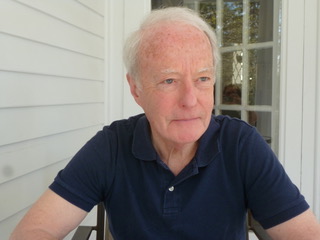Musings on Olympia by Emanuel Garcia
If you are a lucky reader, you chance upon a book that makes your hair stand on end in wonder and sends a shiver down your spine. This book does that, for it is deft, digressive, and capricious in ways that leave you wondering what whim set the author’s mind so ablaze to dare to set this story to paper.
Was it a flight from reality or to reality? But what is reality?
There is no cage within which you can categorize this writing: no fable, mystery, novella, myth, etc. – they all fail to grasp its essence. Like a song or a wild bird, it flies free from all attempts to pin it down. Emanuel Garcia writes luminescent words that vibrate in the reader’s heart and soul, and set the mind on fire contemplating the strangeness of existence. It leads one to ask oneself: What do you desire? What is desire? Where does it lead us?
I had to read the book very slowly, a few pages at a time, and often before sleep and dreams. My passage from reading to sleeping felt like walking across a bridge in the twilight, crossing a river or a canal, and when dawn arrived, to cross back. I would often then reread those pages in the morning before proceeding to the next bridge that night. Sometimes I would get lost, but that lostness drew me into a waking dream state that the writing had conjured. It was eerie, but in the alluring way one hears a gypsy violinist’s haunting tune drifting from a twisting alley. A siren call.
On its face, this brief jewel – 125 pages – is about Donato and Olympia and their enigmatic love affair in and about the environs of Venice, Italy, the city of masks, secrets, and labyrinthine ways. The city called La Serenissima, The Most Serene Woman, whose nickname belies the tempestuous Olympia and the wildly sexed Donato, whose love and desire for women and what they represent snakes through the book. Only a eunuch would fail to understand Donato, who has written this book as a gift for Olympia, who, in her own way, makes Donato the writer seem pedestrian by comparison. But her passions are slightly different; she is a deeply wounded wild mystical woman, entrancingly beautiful and prone to drift out of this world for periods of time. Her gypsy mother died when she was six-years-old and, although her life-long grieving father doted on her, she found solace in visitations from the angels Michael and Gabriel and Jesus’s mother Mary and Mary Magdalene. She would visit churches for the peace it brought her to sing with her beautiful bell-like soprano. A serene tigress is she, prone to despair and faith, strange sexual activities devoid of emotion, and intense love and insight.
Being a writer and not being sure why he writes or to what end, Donato takes twenty years to spin out this story for Olympia. It is what he calls a “caprice,” sudden motive-less writing done on a whim that he considers “the absolute jewel of literature.” In it, the mundane and imaginative mix, as do dreams and waking life. Perhaps living is whimsical and condenses the years when one steps out of the cage and just writes when possessed by language. For Donato discovers, of course, that in writing about Olympia, he is writing about himself, and in writing about another couple, Emilia and Marcello, and all their mutual interactions, both sexual and artistic, he is holding up a mirror to the multifaceted and complicated nature of everyone.
What are we doing with our lives and why? What does it mean to be yourself? What do we want? What is the nature of wanting? And prayer? Why write anything at all – my musings on this enchanting book or the book itself? Who is it all for? Does Emanuel/Donato/ me or you need an audience for our deepest caprices, our secrets, our deepest wishes? What’s it all about, Alfie?
If you wish to be transported out of this sorry world for a while to a place where you can wonder, read Olympia; it is a marvelous book. It will take you in circles, like the closed circle of infinity represented by a ring.
Such an exploration brought me back to where I started, and it felt as though I knew the place for the first time, this life where the seen, unseen, and the unforeseen meld into a work of art that we call literature, and life.
——————————————————————————————————
Emanuel Garcia is not just a wonderful writer but a medical doctor, a psychiatrist and psychoanalyst, and a brave and brilliant Renaissance man. Here he is interviewed by Tessa Lina.
